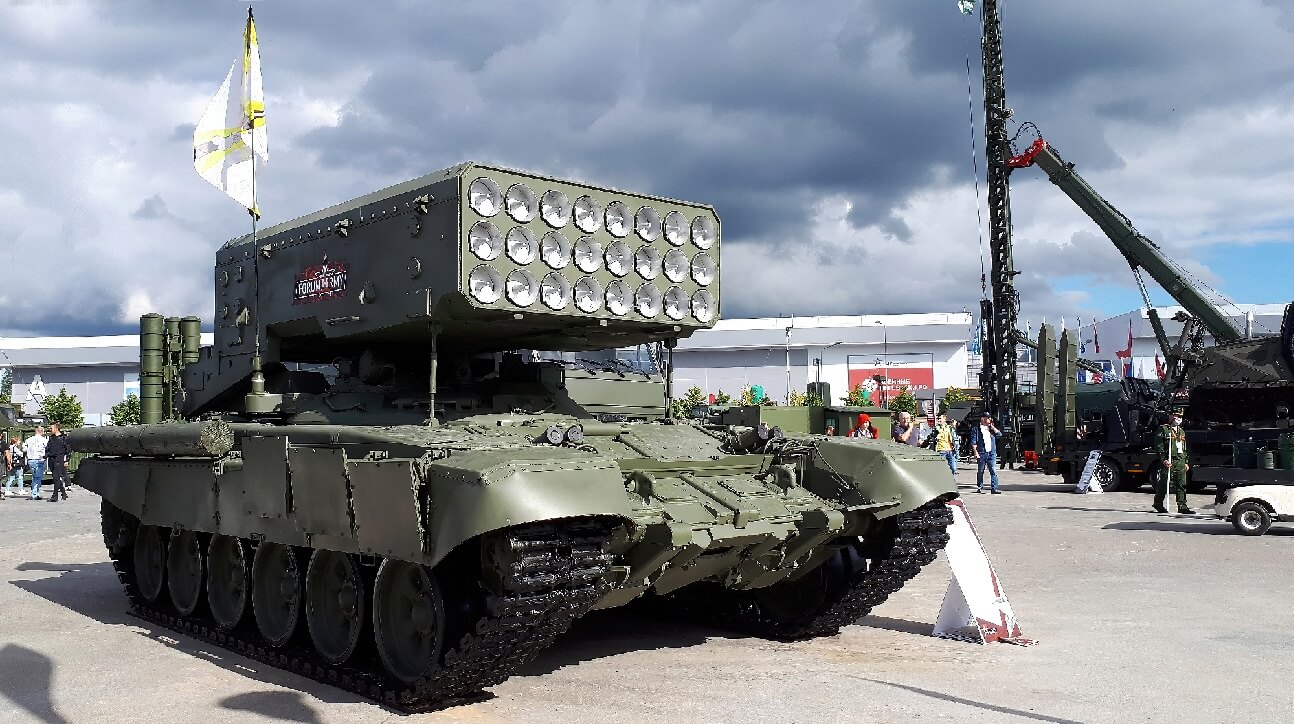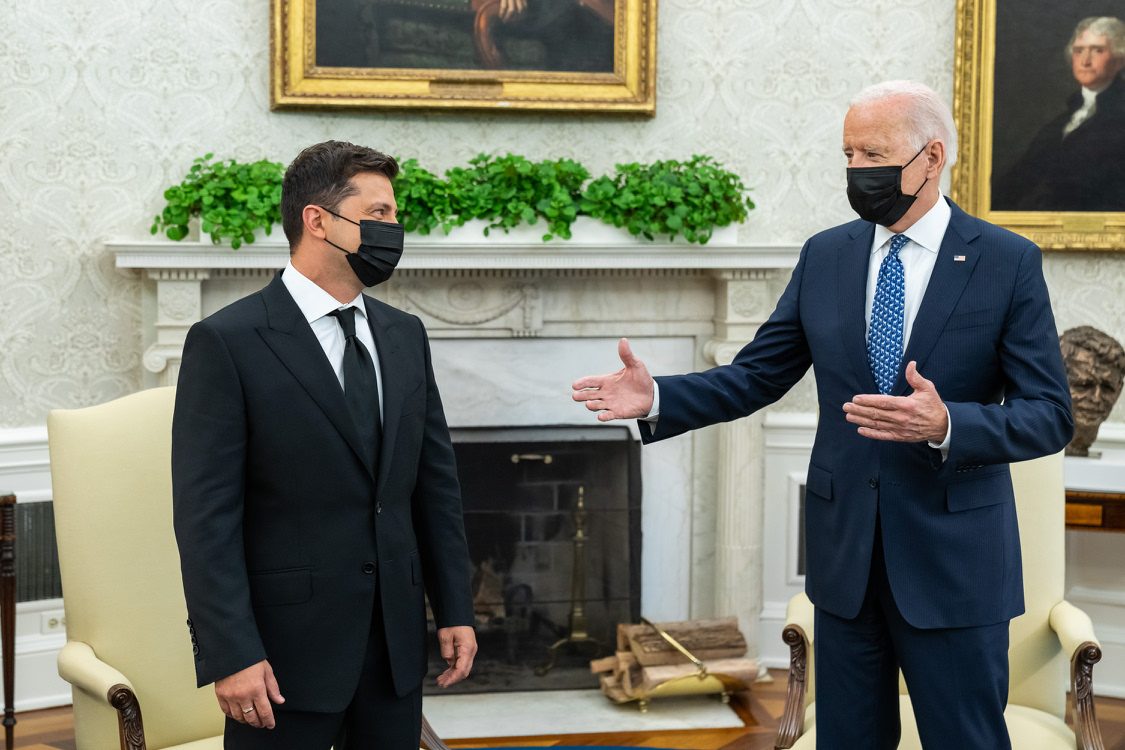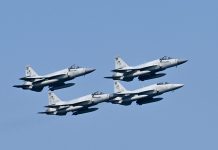It has been nearly a week since Russian troops entered Ukraine. They may or may not win the war militarily, and take full control of that country, but one thing is certain. And that is the fact that Russians have lost very badly to Ukraine in what is called the “information war”.
Invasion of Ukraine: Persistent Betrayal & Back-Stabbing Of Russia By America Since 1991 Could Be The Trigger
Ukraine’s undisputed victory over Russia in this information war has resulted in a situation that is increasingly silencing, in the rest of the world, particularly in Western democracies, those who understood Moscow’s concerns and turning fence-sitters to be blind supporters of Ukraine’s President Volodymyr Zelenskyy, who not long ago was considered a complete misfit in the position he holds because of his authoritarian streak and terrible management of the economy.
Gone are the days of doubts and hesitations; the Western world is now more or less united in supporting Ukraine’s cause.
How long Ukraine can continue to capture the world’s attention is still to be determined, but it has proved that its resilience has been badly underestimated by Russia. But what is more, Ukraine’s disinformation and propaganda tactics have been a huge success story in targeting people and drawing their sympathy from all over the world, including a few even in Russia.
Social media posts originating from Ukraine have been flooded with stories about how young and old, men and women are stopping Russian trucks and tanks.

Ukraine’s Disinformation Campaign?
The fairy-tale of “Ghost of Kyiv”, a Ukrainian fighter single-handedly shooting down six Russian planes, has gone viral on social media all over the world. So much that even knowledgeable and responsible people believed it.
Do Svidaniya China! Why Russian Invasion Of Ukraine Is Terrible News For Beijing’s Counterfeit Weapons Industry
But, when it was found out later that it was a complete hoax, concocted through a combination of deep fake videos based on images from a popular video game, the faithful jumped to the story’s defense, arguing that “it didn’t matter if the pilot wasn’t literally real, it was important for Ukrainian morale for us to pretend”.
There is reportedly a Ukrainian fighter pilot who has taken out 6 Russian jets in air to air combat. He is being called the "Ghost of Kyiv"pic.twitter.com/zCdK2URsHM
— Market Rebellion (@MarketRebels) February 25, 2022
As Micah Meadowcroft, Managing Editor of the ‘American Conservative’, has cited, “Modern propaganda doesn’t even bother trying to convince (if even by deception). It merely says “if you think This, you’re good, if you think That, you’re bad, then encourage the Good People to go attack the Bad People”.
In this narrative of Ukraine, Zelenskyy is noble and Russian President Putin is evil. And this explains why there are reports of potential prosecution of the people in the Czech Republic who are pro-Russians. And this also is the reason why in far-away Canada, without realizing how their fellow citizens and truckers were “crushed” during their roadblock weeks ago, people are filling streets, but this time with members of Parliament and city counselors, to express their “solidarity” with Ukrainians.
Decoding The Russian Invasion Threat: Why ‘Joe Biden’s War In Ukraine’ Might Not Have Its Desired Impact On Putin
Ukrainians have similarly changed the perceptions of the Americans. On February 23, an AP-NORC poll had revealed that just 26 percent of Americans were of the opinion that the US should have a major role in the conflict, 52 percent recommending a minor American role and 20 percent advising none at all.
The survey showed widespread public skepticism of the US intelligence community. Besides, it said that 43 percent of Americans now approve of President Biden’s handling of the US relationship with Russia, a downtick from 49 percent in June of last year.

But on February 25, Gallup’s poll revealed that 52% of Americans saw the conflict between Russia and Ukraine as a critical threat to US vital interests. Eighty-five percent of the Americans viewed Russia unfavorably. And on February 28, CNN released a poll, showing that 83 percent of Americans favored increased economic sanctions against Russia in response to the invasion, with just 17% opposed.
Social Media — The Most Potent Weapon
It is clear that social media is playing a big role these days in exacerbating all the pathologies of propaganda. As American analyst Glen Greenwald points out, there is no propaganda as potent or powerful as war propaganda.
Video showing what appear to be a pair of UAF MiG-29s, one of which zooms past the camera at tree-top level, reportedly in the Kyiv area. Note the dark smoke trial – it is not due to damage; the #MiG29's RD-33 turbofans are notorious for being smokey. https://t.co/xXW8S2yEkz pic.twitter.com/m0wRMzMapL
— Guy Plopsky (@GuyPlopsky) February 24, 2022
“The endless flood of morally righteous messaging, the hunting down of and subsequent mass-attacks on heretics, the barrage of pleasing-but-false stories of bravery and treachery, leave one close to helpless to sort truth from fiction, emotionally manipulative fairy tales from critically scrutinized confirmation.
It is hardly novel to observe that social media fosters group-think and in-group dynamics more than virtually any other prior innovation, and it is unsurprising that it has intensified all of these processes” he adds.
And when the atmosphere is so vitiated then it becomes very difficult to question the assumptions that Putin bears all blame for the conflict and the US, the rest of the West, and Ukraine bear none and that the only way to understand this conflict is through the prism of war criminality and aggression.

And, in such an atmosphere it is not surprising to see the demands from some US Congressmen like Rep. Adam Kinzinger (R-IL) asking the US to declare a “No Fly Zone” over Ukraine and noted intellectuals like Ben Wittes of Brooking Institution and President of the prestigious Council on Foreign Relations, Richard Hass, tweeting that time has come for a regime change in Russia by overthrowing Putin.
They are least bothered that doing so will mean a full-fledged nuclear war with Russia. They do not visualize that doing so will also push Russia irretrievably to the side of China, America’s principal adversary today, let alone making the rest of the world suffer an energy crisis and a collapse of economic/financial stability.
America’s Paranoia About Russia
But that is not all. Such an atmosphere reminds one of the” McCarthyism” of the 1950s in the USA when the practice of making accusations of subversion and treason by the alleged Communists and their sympathizers reached menacing proportions.
Senator Joe McCarthy of Wisconsin, a Republican, launched a series of highly publicized probes into alleged Communist penetration of the State Department, the White House, the Treasury, and even the US Army.
Cheaper, But Not Reliable: Why Chinese Weapons Are Fast Losing ‘Edge’ In Global Arms Export Market Despite Tall Claims
He and his supporters in the Eisenhower Administration repeatedly told the public that they should be fearful of subversive communist influence in their lives as the commies could be lurking anywhere, using their positions as school teachers, college professors, labor organizers, artists, or journalists to aid the program of world communist domination.
This paranoia seems to be back in the United States now in the form of “Putinism”. So much so that last week when Senator Mike Lee (R-UT) argued that Biden needs Congressional approval before engaging American troops in eastern Europe, which he thought was a constitutional requirement, his critics widely vilified him as “a traitor”, “Russian agent” and “Senator of Moscow”!
Even otherwise, Congressmen like Rep. Eric Swalwell (D-CA) and Rep. Ruben Gallego (D-AZ) have suggested that all Russians should be immediately deported from the US, including Russian students studying at American universities. And a Washington Post columnist, Henry Olsen, has proposed banning all Russian athletes from entering the US: “No Russian NHL, football, or tennis players so long as the war and claims on Ukrainian territory exist.”

Understandably, American social media platforms like Facebook and Twitter are now being pressured to block “Putin propagandists”. The mainstream media like the New York Times and Washington Post are now seemingly falling in place. In other words, there appears to be now a near-consensus among the American elites who matter that Putin is evil and that he must be removed.
In fact, such a consensus that exists today in America has been described by Greenwald as “Russiagate”. Starting in mid-2016, he writes, “the Washington political and media class was obsessed with convincing Americans to view Russia as a grave threat to them and their lives.
They created a climate in Washington in which any attempts to forge better relations with the Kremlin or even to open dialogue with Russian diplomats and even just ordinary Russian nationals was depicted as inherently suspect if not criminal. All of that primed American political culture to burst with contempt and rage toward Russia, and once they invaded Ukraine, virtually no effort was needed to direct that long-brewing hostility into an uncontrolled quest for vengeance and destruction.”
Of course, such a consensus was there when President Bush attacked Afghanistan in 2001 and Iraq in 2003 or for that matter when President Obama participated in a France/UK-led NATO regime-change operation in Libya in 2011. In all these instances, government/media disinformation and emotional manipulation were as pervasive as it is today. Of course, social media, which was not that influential then, has further heightened this phenomenon now.
But then, if history is any indication, this propaganda will not last long. The same Americans now openly admit that interventions in Afghanistan and Iraq were wrong and they foolishly believed outright falsehoods by the then Administrations in the name of the “War on terror”.
?️ The @UN General Assembly adopts a resolution condemning the Russian aggression in #Ukraine. ??
141 member states voted in favor. ✅
This is an urgent call on Russia to stop this unjustifiable invasion. pic.twitter.com/HsuU2RkiMJ
— La France à l'ONU ???? (@franceonu) March 2, 2022
Similarly, a day will come when the same Americans will question Biden as to why, and this has been pointed out by Jeff Rogg, a historian of US intelligence and an assistant professor in the Department of Intelligence and Security Studies at the Citadel in an Op-Ed in The LA Times, he allowed the CIA to train, fund, and arm a Ukrainian insurgency on the same model as was the case when it backed the Mujahideen insurgency in Afghanistan that morphed into Al Qaeda, with the goal being “to weaken Russia over the course of a long insurgency that will undoubtedly cost as many Ukrainian lives as Russian lives, if not more.”
However, that is for the future. At the moment, “dissent” over Ukraine is not respectable in the United States or for that matter in any major country that otherwise prides itself in democracy. Dissenters are victims of the information war today.
- Author and veteran journalist Prakash Nanda is Chairman of Editorial Board – EurAsian Times and has been commenting on politics, foreign policy on strategic affairs for nearly three decades. A former National Fellow of the Indian Council for Historical Research and recipient of the Seoul Peace Prize Scholarship, he is also a Distinguished Fellow at the Institute of Peace and Conflict Studies. CONTACT: prakash.nanda@hotmail.com
- Follow EurAsian Times on Google News




